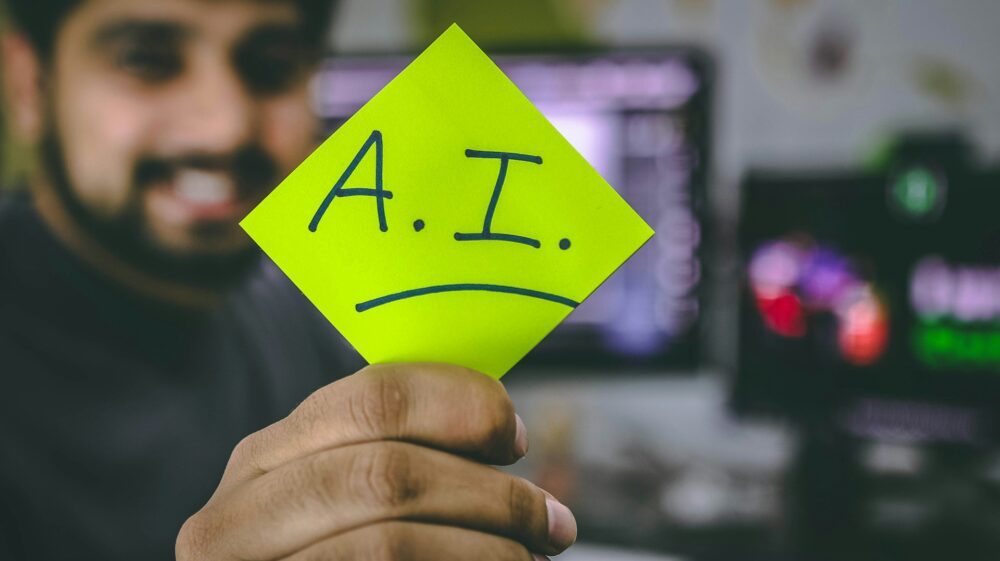Business
LEARNTEC 2024: XR and AI Technologies as Game Changers in Education
From June 4-6, 2024, the digital education industry will gather at LEARNTEC in Karlsruhe, featuring around 100 speakers and 70 lectures on trends in digital education. Key topics include AI, XR, data literacy, and performance management. The event, targeting education professionals, companies, and scientists, aims to inspire and expand knowledge through exclusive keynotes and workshops.

From June 4th to 6th, 2024, the digital education industry will gather at LEARNTEC in Karlsruhe. Around 100 speakers from business and science will provide insights into current trends in digital education in around 70 lectures and workshops at the specialist congress.
In addition to the dominant topic of artificial intelligence, virtual and augmented realities (XR) will also play an important role. Topics such as data literacy, trust culture, ESG and performance management are also on the agenda.
“We warmly invite all congress participants to expand their knowledge, gather new ideas and be inspired,” say Sünne Eichler and Prof. Dr. Peter A. Henning from the LEARNTEC congress committee. The congress is aimed at experts from the education sector, companies, scientists and interested parties. Exclusive keynotes are intended to provide pioneering impulses.
Exclusive keynotes from leading specialists will be present at Learntec
Prof. Dr. Ulrike Lucke from the University of Potsdam will kick off the national education platform, from which the federal government expects a boost for the digitalization of education. In the afternoon, Lori Niles-Hofmann, Senior Learning Transformation Strategist from Canada, will speak.
The Canadian learning strategist talks about the future of learning and the use of AI in digital learning. “This will be much more than using ChatGPT to write courses,” says Niles-Hofman. “Instead, we will look at how AI can be connected to the EdTech ecosystem of organizations to fully understand how people learn and where learning impacts the business. Finally, I will speak on skills-based organizations and the role that learning and development and AI will play in this new paradigm.”
On the second day, there will be lectures on learning support from Prof. Anja Schmitz and Jan Foelsing, as well as a panel discussion on the wishes of the younger generation for the digital education of the future. Jon Buchmüller, a student at the University of Hohenheim, young professional Tamara Frankenhäuser from the LEARNTEC team and trainees from trade and industry will be taking part in the discussion.
The team led by Charlotte Axelsson from the Zurich University of the Arts presents a holistic approach to designing “digital learning spaces that can be experienced sensually and tenderly”. Prof. Dr. Eric Eller from the Technical University of Ingolstadt sheds light on the importance of a culture of trust for learning in organizations.
Utilizing AI potential while remaining critical
In an interview with LEARNTEC, Lori Niles-Hofmann explains the differences in how Europe and Canada deal with artificial intelligence, how companies can promote diversity and why job titles are no longer so important.
The Canadian uses AI every day for various tasks, from research to writing. In the L&D area, AI makes it possible to open up access to learning and optimize learning processes. “We should use AI potential while remaining critical,” says Niles-Hofmann.
In order to rethink training and continuing education, Niles-Hofmann advocates a competency-based approach: employees should be hired and deployed according to their individual skills. “It is important to identify employees’ specific skills rather than relying solely on their job titles,” she says. This would enable companies to better support employees.
AI offers a wide range of possibilities for recording, classifying and analyzing employees’ skills. Communication remains essential, however. “If you take a superficial look at my skills, you might think that I would be put back into banking because I have gained 15 years of experience here. But I never want to work in banking again,” says Niles-Hofmann.
According to Niles-Hofmann, in order to make training and further education more diverse, the focus must be on the learning content. People must be able to identify with it. In addition, companies should address issues such as accessibility and barrier-free access.
For the future, Niles-Hofmann believes that soft factors such as flexibility, critical thinking and curiosity are particularly important. Hard skills are changing rapidly. Companies should analyze exactly who needs which skills and how they are used. “This precise scaling enables companies to use their resources more efficiently.”
Digitalisation in schools requires fundamental changes in learning settings
Another focus is the digital transformation in schools. According to Micha Pallesche from the LEARNTEC committee, digitalization has often only taken place on the surface so far. A fundamental change in learning settings is necessary.
Schools have been gradually equipped with technical equipment using funds from the Digital Pact. But now it is also a matter of changing teaching and learning settings in the spirit of a “culture of digitality,” as Pallesche explains.
“Artificial intelligence in particular has great potential to fundamentally revolutionize school learning processes, from diagnostics to adaptive learning to a changed form of performance assessment,” says Pallesche. However, this process of change is proving to be very challenging.
Lectures and workshops with school@LEARNTEC
LEARNTEC in the dm-arena shows how school management, school authorities and media centers can master the current challenges of digital transformation. Around 100 exhibiting companies present new technical developments for teaching on topics such as artificial intelligence, robotics and digital learning environments.
The school@LEARNTEC forum offers lectures and workshops on all three days of the trade fair. On Tuesday, the focus is on promoting teachers’ digital skills and future-oriented learning space concepts. Experts from science and practice will talk about, among other things, “Competence networks learning: digital”, the “State strategy for digitization in schools” in Baden-Württemberg and the basics and concepts for learning in the future.
Wednesday is aimed specifically at school authorities with topics such as adaptive learning through AI or maker spaces. The agenda includes keynotes on innovative school construction by Rosan Bosch, “passionate education with AI” by Prof. Dr. Olaf Burow and the “digital education platform” of the Baden-Württemberg Ministry of Education. Successful examples of digital schools are shown by the Smart Schools of BITKOM and the Danish Based Learning project.
Tickets are available on the official LEARNTEC website.
__
(Featured image by Hitesh Choudhary via Unsplash)
DISCLAIMER: This article was written by a third party contributor and does not reflect the opinion of Born2Invest, its management, staff or its associates. Please review our disclaimer for more information.
This article may include forward-looking statements. These forward-looking statements generally are identified by the words “believe,” “project,” “estimate,” “become,” “plan,” “will,” and similar expressions. These forward-looking statements involve known and unknown risks as well as uncertainties, including those discussed in the following cautionary statements and elsewhere in this article and on this site. Although the Company may believe that its expectations are based on reasonable assumptions, the actual results that the Company may achieve may differ materially from any forward-looking statements, which reflect the opinions of the management of the Company only as of the date hereof. Additionally, please make sure to read these important disclosures.
First published in MIXED. A third-party contributor translated and adapted the article from the original. In case of discrepancy, the original will prevail.
Although we made reasonable efforts to provide accurate translations, some parts may be incorrect. Born2Invest assumes no responsibility for errors, omissions or ambiguities in the translations provided on this website. Any person or entity relying on translated content does so at their own risk. Born2Invest is not responsible for losses caused by such reliance on the accuracy or reliability of translated information. If you wish to report an error or inaccuracy in the translation, we encourage you to contact us

-

 Crowdfunding1 week ago
Crowdfunding1 week agoSpain’s Real Estate Crowdfunding Boom: Opportunity, Access, and Hidden Risks
-

 Fintech4 days ago
Fintech4 days agoDruo Doubles Processed Volume and Targets Global Expansion by 2026
-

 Impact Investing2 weeks ago
Impact Investing2 weeks agoIntesa Sanpaolo’s 2026–2029 Growth and ESG Strategy
-

 Business1 day ago
Business1 day agoTopRanked.io Weekly Affiliate Digest: What’s Hot in Affiliate Marketing [Health Trader Affiliate Program Review]
















